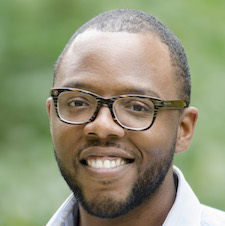 Chezare A. Warren, an assistant professor of teacher education at Michigan State University, conducted a study that found that special attention given to Black males in urban high school classrooms may not serve them well later in life. Dr. Warren interviewed a group of Black male graduates of a single-sex college preparatory high school in Chicago where all students in the graduating class went on to college.
Chezare A. Warren, an assistant professor of teacher education at Michigan State University, conducted a study that found that special attention given to Black males in urban high school classrooms may not serve them well later in life. Dr. Warren interviewed a group of Black male graduates of a single-sex college preparatory high school in Chicago where all students in the graduating class went on to college.
But Dr. Warren found that to avoid a failing grade in high school, the former students said they were given more time to finish assignments, extra credit projects, and were allowed many opportunities to retake assignments, exams, and quizzes.
“The inclination in some secondary schools is that young men of color from urban environments need a lot of help, that they’re behind, so we give them all of this support that doesn’t really challenge them to actually be better,” said Dr. Warren. “If you’re offering the students supports without actually pushing them to meet high standards for college readiness, those supports are likely just weighing them down. To win a race, you must run faster, not slower. And at some point they will get to college, but the only way for them to stay in college is to have the skills to struggle through the academic difficulties they will likely encounter.”
Dr. Warren joined the faculty at Michigan State University in 2014. He is a graduate of the University of Illinois, where he majored in secondary education. He holds a master’s degree from Concordia College and a Ph.D. in policy studies in urban education from the University of Illinois at Chicago.
The study, “We Learn Through Our Struggles: Nuancing Notions of Urban Black Male Academic Preparation for Postsecondary Success,” was published in a special issue of Teachers College Record. It may be accessed here.


It is my belief that “handholding” of any student hinders their success later on. However, I believe these students are receiving the same treatment students receive at schools were they are the minority and they are not given these same opportunities. Though the grades of these (and non-Black students) students may have gotten them into college, it is up to them to be successful and I think many of them go on to be great contributors to our society.
Wouldn’t “Handholding” be almost the same as the sympathy game? I remember an article was published on this site that explained that white teachers are less critical and show more sympathy and pacification to poor minority students than white which in inturn is detrimental to their academic progress in the longterm. In college, depending on the professor, some will strict on assignments being handed in on time; not allowing retake exams; and giving extra credit freely. I should know, as a first generation black male student, this was an arduous process for me and I learned the hard way.
I believe without some struggles and failures, one will never learn how to cope and persist beyond that. It will just eat away at their self-esteem.